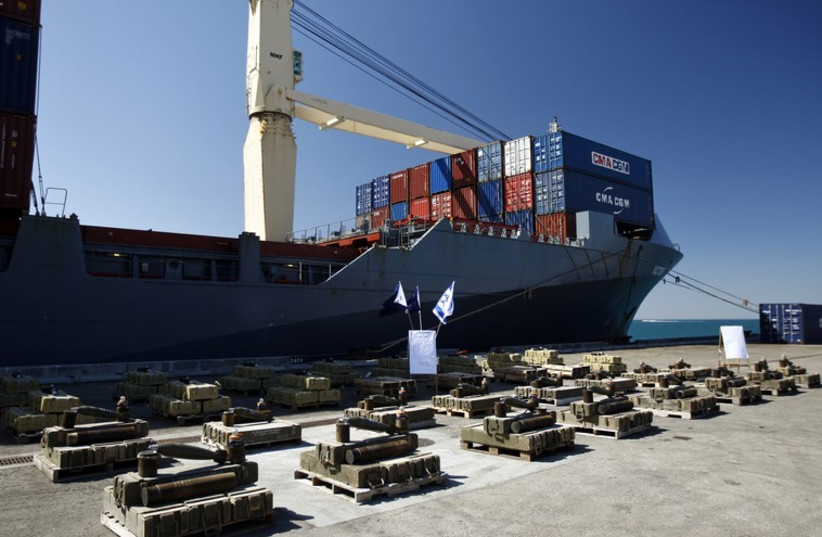As Iranian-backed Houthi terrorists in Yemen continue their missile and pirate attacks on the Red Sea and other bodies of water, measures are being taken to ensure the safety of port workers in Israel.
The attacks have led to various incidents directly affecting these workers, including increased risks, physical strain due to staff cuts, and changes in safety regulations.
The Israel Institute for Occupational Safety and Hygiene (IIOSH) of the National Insurance Institute has released guidelines on how to maintain the safety of port workers during times of war.
Recent intensified Houthi attacks on maritime vessels in the Red Sea have directly impacted the continuous supply at various ports in Israel, resulting in a significant impact on port operations. Major shipping companies, such as the world’s largest – Danish Maersk – have announced the suspension of all shipments passing through the Red Sea, and the German shipping company Hapag-Lloyd has announced the freezing of its shipments through the sea, forcing them to go the much longer way via the western part of Africa.
The reduction in maritime shipments to Israeli ports has led to a decrease in manpower and an increased workload for the remaining workers. In addition, numerous shipments and cargoes remain stuck in the ports, causing congestion and safety hazards.

Safety recommendations for port managers
In response, safety and regulation experts provide a series of recommendations for managers on how to ensure the safety of port workers given the increased workload.
“The current wartime operations at the ports are as crucial as during routine days,” IIOSH Director-General Dr. Miki Winkler stressed.
“The activities of port workers are critical for the efficient unloading and loading of goods, as well as the professional and safe handling of cargo,” he said. “To navigate through the wartime routine, it is vital for all managers and workers to recognize the risks and minimize them.
“Obtaining all necessary information about hazardous materials and emergency response procedures is vital in case of emergency situations,” Winkler said. “Together, we will overcome challenges and continue to advance the State of Israel and its economy safely, without incidents and workplace accidents.”
